Building a Thriving Culture
Overview: The panel discussed their leadership journeys, highlighting the evolution from individual contributors to empowering leaders. They emphasised the importance of clarity, connection, adaptability, and a strong culture in navigating the challenges of a rapidly changing business landscape. The discussion also touched on fostering psychological safety, building high-performing teams, and strategies for effective communication and talent management.
Key Insights:
- Leadership as a Journey: Leadership is a continuous process of learning and growth, evolving from focusing on individual achievement to empowering and developing others.
- Clarity and Connection: Leaders must communicate a clear vision and purpose, ensuring that team members understand their roles and feel connected to the organisation’s goals.
- Building High-Performing Teams: Effective leadership involves fostering a culture of trust, respect, and psychological safety where team members feel safe to take risks and contribute their best work.
- Adapting to Change: In a rapidly changing business landscape, leaders must be agile and adaptable, embracing new technologies and ways of working.
- Importance of Culture: A positive culture is essential for attracting and retaining top talent, fostering collaboration, and driving innovation.
- Recognising Different Skill Sets: Leaders should acknowledge that individual contributors and managers possess different skill sets and create opportunities for both to thrive.
- Balancing Support and Demand: Effective leaders provide both support and challenge to their team members, fostering a culture of high performance and continuous improvement.
- Embracing Vulnerability and Authenticity: Leaders should be open and honest with their team members, sharing their own struggles and challenges to create a more authentic and relatable leadership style.
- Chief Repetition Officer: As leaders progress, their role shifts from doing to communicating, emphasizing the importance of consistent messaging and reinforcement of the organisation’s vision and values.
- Psychological Safety and Trust: Creating a psychologically safe environment where team members feel comfortable taking risks and sharing ideas is crucial for high performance. Tools like user guides and operating manuals can help build trust and intimacy within teams.
Talent Acquisition and Retention: In a competitive talent market, organizations need to offer compelling benefits and create a positive employee experience to attract and retain top talent.
